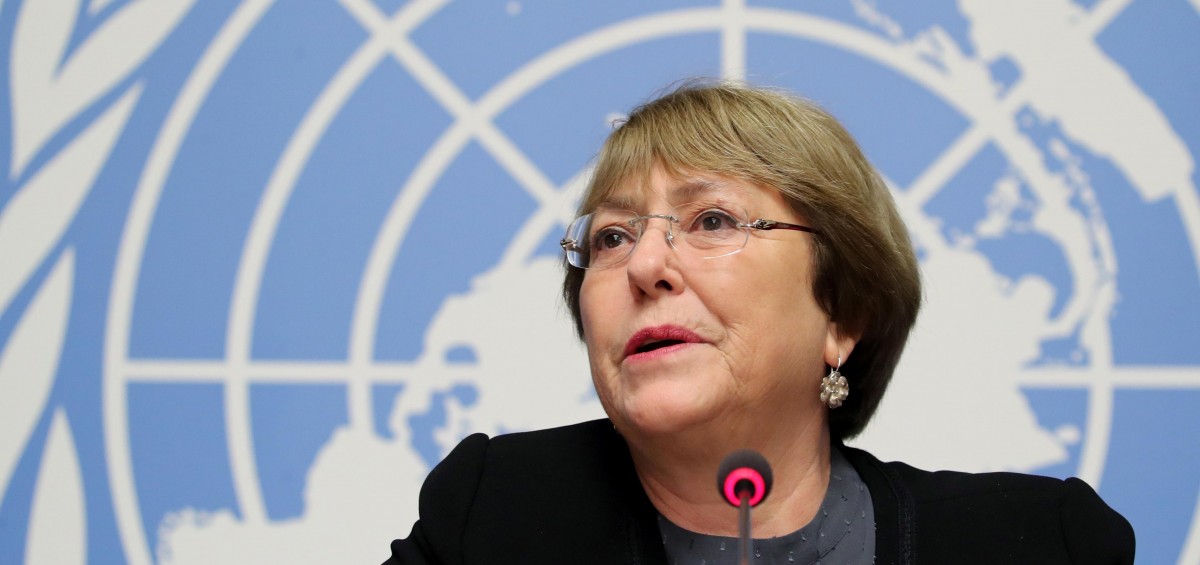New Delhi: A day after the UN human rights chief highlighted human rights violations in Jammu and Kashmir, India stated that her “unwarranted remarks” do not reflect the ground reality.On Monday, September 13, the UN high commissioner for human rights, Michele Bachelet, had opened the 48th session of the Human Rights Council with an update on the global human rights situation.In her remarks, Bachelet revealed that her office would soon be finalising allegations of serious human rights violations in China’s Xinjiang province. She also mentioned her concerns about problematic practices in various countries, from the Central African Republic to Palestine.
On India, she noted that “restrictions on public assembly, and frequent temporary communication blackouts, continue in Jammu and Kashmir, while hundreds of people remain in detention for exercising their right to the freedom of expression, and journalists face ever-growing pressure”.She also noted that the “worrying” usage of the Unlawful Activities (Prevention) Act throughout India had been the highest in the country.
“While I acknowledge the Government’s efforts to counter terrorism and promote development in the region, such restrictive measures can result in human rights violations and foster further tensions and discontent,” she added.During the general debate on the oral update by the High Commissioner, MEA secretary (west), Reenat Sandhu said, “We take note of references to India in the oral update by the High Commissioner and express our disappointment over her unwarranted remarks on the Union Territory of Jammu and Kashmir, which do not reflect the ground reality”.
She claimed that India’s constitution enshrines basic human rights as fundamental rights. “Our Parliament, independent judiciary, vibrant media and civil society ensure full enjoyment of human rights by our people,” said Sandhu.
She also appeared to criticise the multilateral system approach to global human rights promotion but asserted that the best method would be to engage problematic states. India, as a general rule with rare exceptions, has not voted in favour of country-specific resolutions.“We believe that promotion and protection of human rights are best pursued through dialogue, consultation and cooperation among States and through provision of technical assistance and capacity building. Any shortcomings in upholding human rights must be addressed in a transparent and impartial manner, anchored in respect for national sovereignty and non-interference in internal affairs of States,” Sandhu added.
Reiterating that New Delhi was at the “forefront of global action and discourse on promotion and protection of human rights”, she pointed out that India was seeking re-election to the HRC for the term 2022-24.Bachelet had also given a separate oral update on Afghanistan. “I am concerned by reports of civilian casualties and human rights abuses, as a result of the fighting in Panjshir valley, as well as the growing hardship caused by the dire humanitarian situation there,” said the UN official.
She also worried that women had been increasingly pushed back from the public sphere by the Taliban authorities, contrary to assurances. The senior UN official also spoke about “credible allegations” of killings of former security officials, even though the Taliban had declared a general amnesty.
The senior Indian diplomat also spoke about the “grave situation” in Afghanistan in her statement.Sandhu stated that in line with UN Security Council resolution 2593, human rights of women, children and minorities should be affirmed, safe passage for those wanting to leave Afghanistan ensured, as should be unhindered access to humanitarian aid. “The international community must stand with the people of Afghanistan in their desire to live in peace and dignity”.
































